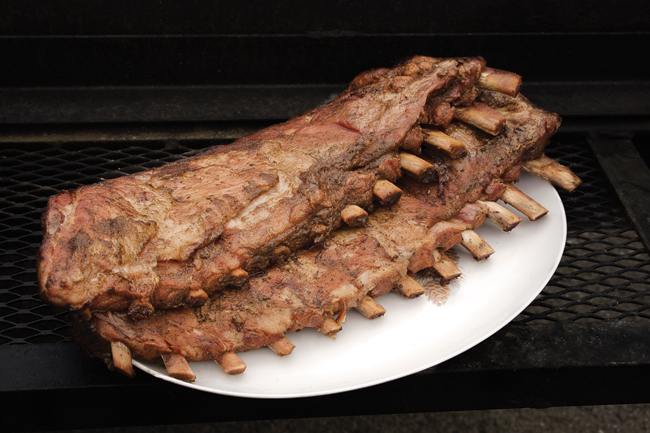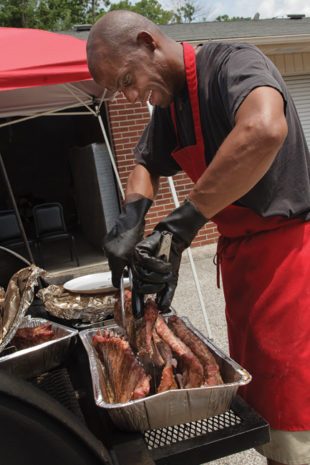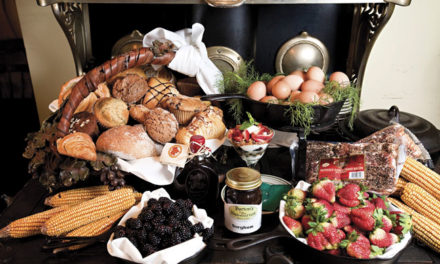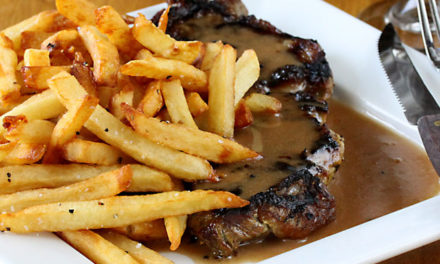BY ELISABETH ANDREWS
When you drive past the Sunoco gas station near the corner of Smith Road and East 10th Street, your first thought probably isn’t “world-class gourmet barbeque.” But if you pull up on a Thursday between 10:30 am and 6 pm, that’s exactly what you’ll find.
Erected beside the pumps is a temporary barbeque village, buzzing with the thrill of hickory-rich pork shoulder piled high on toasted buns, tender spiced ribs with the thinnest shell of charred crispiness, and juicy slow-roasted chicken slathered in perfectly tangy sauce. You’ll also find bright hand-shredded coleslaw, smoky chili thick with garden vegetables, baked beans studded with scallions and bacon, and sweet, simple corn. Everything is made from scratch, and much of it is locally sourced.
It’s a far cry from the typical gas-station fare, but so is Chris Smith, owner of the station and its Short Stop Food Mart. The Bloomington native is a civil engineer who initially purchased the business as an investment in 2005. Through his engineering work, however, he became more involved in sustainable planning and began seeing his acquisition in a new light.
“I started doing my homework and realized how fragile the whole food system was,” he says. “I was learning about energy security and food security and how there’s going to come a time when it’s no longer cheap to ship a green pepper from China.”
Smith determined that his role in protecting Bloomington’s food supply was to transform the Short Stop into a neighborhood grocery. For the past few years, he’s focused on stocking the store with local items that now include Brown County Coffee, Needmore Oatcakes, eggs from Sims Poultry, Square Donuts, Oliver wine, and Upland beer. He also began serving made-to-order breakfast and sandwiches and selling his mother’s homemade fudge.
The barbeque runs April through October. Summer is also the time for thin-crust pizza crowned with basil from Smith’s own garden (call ahead). In colder months, he turns his attention to the daily soup specials, crafted onsite.
“We’re in a transition period here,” he explains, indicating the remaining shelves that hold conventional items from brand name producers. “We’ll probably never get to the point of being one-hundred-percent local, but the goal every month is to get closer.”

















